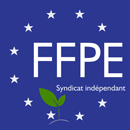Commission:
Mr Jean Claude Juncker
Mr Alexander Italianer
European Parliament:
Mr Antonio Tajani
Mr Klaus Welle
European Council
/ Council of the EU:
Mr Donald Tusk/ Mr Louis Grech
Mr Jeppe Tranholm-Mikkelsen
Committee of the Regions:
Mr Markku Markkula
Mr Jiří Buriánek
Economic and Social Committee:
Mr Georges Dassis
Mr Luís Planas
Court of Auditors:
Mr Klaus-Heiner Lehne
Mr Eduardo Ruiz García
Court of Justice:
Mr Koen Lenaerts
Mr Alfredo Calot Escobar
Ombusdman:
Ms Emily O'Reilly
Ms Beate Gminder
External Action Service:
Ms Federica Mogherini
Ms Helga Schmid
Data protection supervisor:
Mr Giovanni Buttarelli
Mr Christopher Docksey
SUBJECT : Social dialogue and the future of Europe: the need for institutional change
Our federation was born five years after the signature of the Rome Treaties. Since then, we have always been active in supporting the European project and in contributing, to the best of our ability, to guaranteeing the European civil service's independence, competence and permanence.
This is a never-ending battle presenting all manner of risks. Consequently, the European Civil Service Federation ("FFPE") is closely following the debate launched by the Commission's White Paper on the future of Europe. Despite its rather technocratic name, the exercise is neither trivial nor mundane and we must be attentive to all its potential implications.
As a trade union representing the European institutions' staff, we naturally intend to contribute to the debate. We will be particularly keen to ensure that the reflections underway allocate enough time to reviewing matters internal to the European institutions and, in particular, to filling the void that currently exists as regards interinstitutional social dialogue.
The Lisbon Treaty introduced co-decision for changes to our Staff Regulations, but the framework for social dialogue has not been updated to reflect that. As a result, social dialogue is patchy, irregular and too often results in no timely or concrete outcome.
In other words, the framework for contacts between staff representatives and the institutions' Administrators, and with the institutions' negotiators for issues affecting the Staff Regulations, is ill‑adapted. That creates risks that we need to do our best to mitigate.
That is why we are sending you a note spelling out why we need to re-establish an effective framework for interinstitutional social dialogue and sketching out some possible solutions.
We are at your disposal to offer any necessary clarification and to engage in a debate to take this issue forward. The institutions' staff must have a part to play in the discussion and be able to enrich it with their vision and experience. It is also their future that is at stake.
Pierre-Philippe BACRI, President, FFPE Commission
Simon COATES, President, FFPE Council
Attila KUTASI, President, FFPE Economic and Social Committee / Committee of the Regions
Georges MARCOPOULOS, President, FFPE European Parliament
John LUX, President, FFPE EEAS

